#palme d'or nominee
Photo
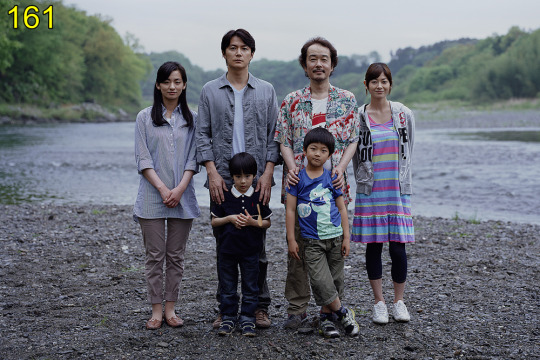
161. Pais e Filhos (そして父になる, 2013), dir. Hirokazu Koreeda
#cinema#hirokazu koreeda#machiko ono#masaharu fukuyama#lily franky#yôko maki#keita ninomiya#shôgen hwang#japanese cinema#2010s movies#cult classic#drama#fatherhood#family relationships#motherhood#switched at birth#dna testing#class differences#childhood#palme d'or nominee#cult director#cinefilos
3 notes
·
View notes
Note
Have you seen la sociedad de la nieve what do make of it? You mentioned anatomy of a fall would've won for best international film so I was wondering
no I haven't seen it yet, but my opinion is not based on the quality of the nominees
Anatomy of a Fall could have been in the same position as All Quiet on the Western Front last year, and Parasite a few years ago:
nominated for both best picture and best international, which boosts your chance of winning best international
it's baffling, France had a Palme d'Or winner in its pocket (Anatomy of a Fall), but chose another movie as their Oscar contender (The Taste of Things), which didn't even make it to the final list of nominees for best international
4 notes
·
View notes
Text
i think the hardest category to predict at the oscars this year is best director.
nolan is winning, so his spot is secure. scorsese is next in line, with lanthimos after him. any of those three missing would be affleck/2012-level shockers.
the other two spots are between four directors imo, two men and two women, each with a lot of compelling pros/cons: gerwig (barbie), triet (anatomy), payne (holdovers), and glazer (zone of interest).
gerwig's a previous nominee and barbie's the highest-grossing film of the year. conventional wisdom says she's likely in. however, the directors branch gets weird sometimes, esp with moneymakers that aren't necessarily in the running to win best picture -- remember when denis villeneuve got snubbed for dune? i can absolutely see gerwig being the high-profile snub (which could potentially catapult her into winning adapted screenplay, lol).
payne is beloved by the old guard, and holdovers is guaranteed two acting nominations, but it might be too stacked of a year. it's not a very flashy movie, and his last nomination was ten years ago, and the academy has changed a lot since then. i'd place him seventh right now.
triet and glazer both fit the bill of the recent trend of international nominees (östlund, hamaguchi, vinterberg, pawlikowski). she's got the palme d'or winner (plus two golden globe wins), he's got best director wins from lafca and nsfc. neither are anything to sneeze at. zone of interest is the one to beat in foreign language film, which helps (anatomy is ineligible there), but anatomy also has surefire nominees in actress and screenplay. they both make a ton of sense.
i... think i'm leaning nolan/scorsese/lanthimos/triet/glazer, but i wonder if lanthimos could shockingly miss for gerwig. or maybe gerwig is safer than i think and only one of triet or glazer make it in! or maybe the worst case scenario happens and we get five men! idk!!!
2 notes
·
View notes
Text

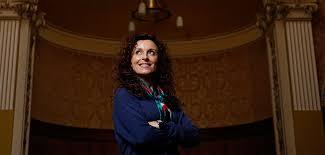


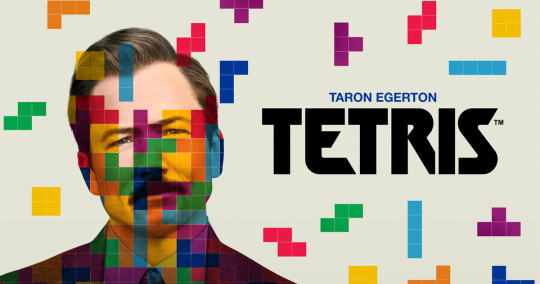
Happy Birthday filmmaker Gillian Berrie, born on September 8th 1967 in Glasgow.
In 1996 Gillian co-founded Sigma Films with director David Mackenzie, writing and producing serial award-winning shorts, 'California Sunshine' and 'Somersault'.
Alongside, Gillian gained experience in numerous film and television roles, ie Casting Director on Ken Loach's 'My Name is Joe' (for which Peter Mullan won the Palme D'or in Cannes) and Lynne Ramsay's legendary 'Ratcatcher'.
Casting experience on the aforementioned led Gillian to create the charity, 'Starfish' which then became 'Jumpcut', which morphed into 'Short Circuit', and 'Big Fish Casting' which segued into Kahleen Crawford Casting
Gillian then produced many of David Mackenzie's films including: Last Great Wilderness, Hallam Foe, Young Adam, You Instead (aka Tonight You're Mine), Perfect Sense, Starred Up and the biggest film ever to be make in Scotland, Outlaw King. She was also heavily involved in the post-production, festival, UK/US theatrical release and Oscar campaign for Academy Award Nominee 'Hell or High Water'.
Sigma's films regularly premiere at A-List festivals and have received over 150 awards internationally, including the Prix de Jury in Cannes for Red Road, and the Silver Bear in Berlin for Hallam Foe, as well as numerous BIFA and BAFTA nominations and awards.
At the Scottish BAFTA New Talent Awards in 2002 Gillian won the BAFTA for Outstanding Achievement.
In order to create a vibrant hub for the film community in Scotland, Gillian founded the 65,000 square ft state of the art, Film City Glasgow in 2004. Since then it has been a full house of productions and film-makers.
In 2012 she founded 'Jumpcut', the UK's one and only, intensive, mentor-led Summer School to provide a fast-track for youngsters into working in the film industry. This project was a runaway success. Over 75% of the participants went onto working in the industry. It ran for two years and won several awards.
She also co-produced the multi-prize winner 'Dear Frankie' and Jonathan's Glazer's 'Under the Skin' (which won 23 awards and received 110 nominations).
Gillian also produced several features for first time feature film directors, including David Mackenzie, Colin Kennedy, Andrea Arnold, Morag MacKinnon and Ciaran Foy, as well as numerous additional shorts including the lauded I Love Luci.
Gillian continues to contribute to the next generation of Scottish film-makers through Short Circuit, which is in its 3rd year and has so far given the first opportunities in film-making to hundreds of new-comers and produced dozens of short films and is developing a number of feature films.
Short Circuit is Scotland's hub for filmmaking talent, supporting the creative and professional development of new and emerging writers, directors, and producers.
Over three years, Short Circuit's film commissioning strand ‘Sharp Shorts’ will award over £400,000 in funding across 27 filmmaking teams, creating opportunities for Scotland's most exciting emerging new screen talent.
‘Sharp Shorts’ has become one of Scotland's most diverse creative initiatives, with an overwhelming majority of female filmmakers as well as significant representation across the LGBTQ+, non-white and disabled communities.
The first batch of short films are screening internationally at festivals such as SXSW, BFI Flare, EIFF, Dinard, LSFF, Berlin, with multiple awards. In particular, Sean Lionadh's short Too Rough has won 11 awards to date.
The ‘First Features’ strand, with a fund of over £300,000, will support 30 new writers, directors, and producers, enabling Scotland-based filmmakers to take a career-defining step towards making their debut feature.
Most recently, Berrie exec-produced the critically acclaimed Pilot and 2nd episode of the Disney/ FX series Under the Banner of Heaven for which Andrew Garfield was nominated for an Emmy (2022). She also produced Taron Egerton's feature, Tetris, which I watched a few weeks ago and was impressed with .
6 notes
·
View notes
Text
If I Had to Rank the Best Picture Nominees
From worst to first...
10. TRIANGLE OF SADNESS - Of the seemingly never-ending buffet of 2022 movies that had a hate boner for the rich, the Academy selected the one that wasn't as entertaining as The Menu, wasn't as righteous as Glass Onion, and wasn't as straight-the-fuck-up mean as Bodies Bodies Bodies. But it was obvious and trite enough for most third graders to lose patience with, and it's the English language debut of an esteemed Swedish director. So here, have a Best Picture nomination. Oh, and a Palme d'Or!
9. ALL QUIET ON THE WESTERN FRONT - To watch the 2022 All Quiet on the Western Front is to miss the hell out of the 1930 version. Even ninety-three years after its debut, Lewis Milestone's classic is a stark and primal thing that laid the groundwork for depicting combat on film. So no matter how good this new version's intentions are (and director Edward Berger's intentions are indeed very good), we're still watching kids play dress up. All sheen and no impact.
8. ELVIS - It was one of the internet's favorite hobbies this past year to flip Tom Hanks an ungodly amount of shit for his garish performance as this film's Colonel Tom Parker. And yeah, he's terrible, but given the rest of the movie around him, could you really say he was wrong? Baz Luhrmann likes to make glitzy and over-the-top fairy tales with sad endings, and that kind of broad artifice is part of the game. The problem with Elvis is that in the middle of it is Austin Butler's gritty, realistic, and quite frankly brilliant method performance. He doesn't fit in. That, or the movie can't contain him. I'd have liked to have seen the movie Butler thought he was in. I'd have liked to have seen the movie Luhrmann was trying to craft around him. I don't think I got either.
7. AVATAR: THE WAY OF WATER - The first hour is great, the third hour is terrific, but the second hour goes all in on a shapeless nature documentary about the seafaring N'avi. That sounds good on paper, but... wait, if James Cameron's writing something, it doesn't sound good on paper either. I can't say I disliked the film, no one can do big quite like Cameron, but I saw it with all the 3D Imax bells and whistles. Once that avenue of consumption is non-viable, I don't see this film working all that well dramatically.
6. TAR - Boy, Todd Field really wanted to make a Kubrick film, didn't he? It's all there, from the deep-focus shots of clean environments, to the low rumble on the soundtrack that portends dread in every scene. Hell, Field even got Kubrick's habit of taking decades in between films down pat. If I don't seem as up-with-people about Cate Blanchett's performance as everyone else, it's because it's part of the machinery. So was Nicholson in The Shining. They're both brilliant performances, but they're not the kind of brilliant you notice on the first viewing. Field wanted to make a Kubrick movie, and for two hours of the 154 minute runtime, he got closer than any of his contemporaries ever have. The problem here is, if Field wants to make a movie to The Old Master's Standard, then he's going to need to live up to The Old Master's Standard. Kubrick would not have gotten away with having a character we've never seen before come in, baldly state the main character's arc as though we were children who needed to get it, and then vanish. This previously spellbinding film never recovers after that, leading to a third act that just... feels... gross. I just think it's weird that while a certain other Best Picture nominee is getting all due credit for its Asian representation, Tar depicts its lead's personal and professional rock bottom as having to actually live in Asia.
5. TOP GUN: MAVERICK - Unlike Avatar, which needed a theatrical experience the price of a small yacht to work, I watched Top Gun: Maverick on my TV, and thought it was just dandy. Tom Cruise threw hundreds of millions of dollars at the screen to convince us that fighter jets were cool. And he was right, too, fighter jets are fuckin' rad. A simple (some might even say "paint-by-numbers") story that's old as the hills subtly lays the groundwork needed for a final half hour that's the tightest, best edited, most well-constructed third act to an action movie I've seen since... Jesus, A New Hope? The more I think about this movie, the more I like it. And this is coming from someone who hated the first one.
4. WOMEN TALKING - How did this movie get the reputation as "The Vegetables" of this crop of nominees, and not Triangle of Sadness, which is so tediously pretentious as to have a Russian capitalist and an American communist drunkenly screeching quotes at each other? Women Talking is about the women in a Mennonite colony reckoning with their sexual assault by the men in their community, and deliberating on whether to stay at that colony, or to leave, and director Sarah Polley deserves all the credit in the world for both making this cinematic, and actually finding moments of levity and recognition. These are women who have undergone something terrible, yes, but they are also women who have history and get on each others' nerves. Their kids screw around in the barn and play jokes on each other. It doesn't sound like much, but it matters a great deal, as through this, we see what these women are potentially giving up by leaving. It's these moments at the periphery that makes the core all the more devastating.
3. THE FABELMANS - I've seen accusations that The Fabelmans is Steven Spielberg mythologizing himself, but that's grossly unfair. This is America, and we did it first. If anyone even slightly interested in film history laid down the tracks for him, then why can't Spielberg drive the train? This is a thinly-veiled, genuinely moving, and wonderfully entertaining Roman a clef of his own life packed with terrific performances, and when the aliens get here in a thousand years after we've blown ourselves to bits, and they ask for evidence that Seth Rogen can act, at least we can say we have it. It's humble without being self-lacerating, and it's the fun kind of meta instead of the irritating kind. Speaking of which, kudos to Spielberg for giving us the funniest and most satisfying final shot since Knives Out.
2. THE BANSHEES OF INISHERIN - I've rarely seen a comedy that left me this unsettled. Or a tragedy that made me laugh so much. Colin Farrell has never been better as a man on an Irish island in the 1920s whose preoccupation with his own image as a nice guy threatens to engulf all of the things and people he ever loved, from his sister, to his friend that doesn't want to talk to him anymore, to his pet donkey. If Everything Everywhere All At Once was the Zoomer ignition point for the kind of nihilism that engenders all-encompassing love and radical hope, then The Banshees of Inisherin feels like this ancient force of queasy malevolence that doesn't give a shit about placidity or empty gestures.
In any other year, I'd call The Banshees of Inisherin the best in show with a smile, and go on my merry way. However two guys named Daniel found out how to activate God mode.
And the best picture of the Best Pictures is...
EVERYTHING EVERYWHERE ALL AT ONCE - How many times in a given year--Hell, in a given decade--do we see a film that earnestly and actively tries to be the best ever made? People want to communicate, or they want to make money, but Daniel Kwan and Daniel Scheinert throw the immigrant experience, kung fu fights, generational trauma, the multiverse, nihilistic despair, butt plugs, and the ebbs and flows of the mother-daughter bond at each other at relativistic speeds in an effort to go down in history. And Holy Hell, it worked! Far from cancelling each other out, these disparate elements cohere into a tear-jerking, mind-blowing, thrilling whole. It's not the actual, literal best movie ever made, but I wouldn't dream of knocking anyone for being taken with how close The Daniels got, because by God I'm taken with it too. I've seen everyone and their mom point at any number of reasons as to why this film reached so many people in the way that it did, but maybe, just maybe, Everything Everywhere All at Once blew up because we haven't seen this kind of ambition in a long, long time. It feels good to see. And we want more.
2 notes
·
View notes
Text
6/3/24 Fact or Fiction
Statement #1: Oppenheimer will win the Best Picture Oscar.
FACT - Awards season tends to be about momentum, so when one film starts racking up gong after gong after gong the likelihood is that the Oscars will follow the trend as it's very rare that they do a 180 on what the Golden Globes et al give the Best Picture awards to, so Oppenheimer will (deservedly) end Oscars night with the Best Picture baldie
Statement #2: Greta Gerwig deserved an Oscar nomination for Best Director.
FACT - It's one of the issues with having strict limits of five nominees for every category outside of Best Picture as that guarantees one deserving nominee is left off, and Greta Gerwig was this year's notable omission. Of course the question is whether anyone deserves to be dropped from the list, and it does have to be said there isn't anyone who feels undeserved on the list of nominees this year unlike the 2022 ceremony where a couple felt like better calls were available
Statement #3: You care who wins the Oscar for Live Action Short Film.
FACT - ...especially this year as I hope that it's one of the nominees who isn't Wes Anderson, mainly as seeing Film Twitter sulk about him not winning will be worth a chuckle or two
Statement #4: Forget Barbie, the Best Actress Oscar nomination Margot Robbie was really robbed of was for 2022’s Babylon.
FICTION - First of all, thanks for reminding me that Babylon existed. I mean that, from the bottom of my heart, as I hadn't been trying to block that out or anything. Just for that I'm going to say that Suicide Squad was a more deserving performance which didn't get nominated, and that's maybe at most half sarcastic as she did her damndest to make that shit watchable
Statement #5: This year’s Oscars telecast will draw more than 20 million viewers, something it hasn’t done since 2020.
FACT - I can see an uptick in interest this year, even though a portion of that interest will be people borderline hatewatching it due to Barbie getting snubbed left and right. You know, sort of like Eurovision when the quirky Eastern European entrants don't make it past the semis yet the bland AF entry from Sweden did as per usual
Statement #6: The Cannes Film Festival Palme d’Or is historically better at picking the best movie of the year than the Academy Awards Oscar for Best Picture.
FICTION - Awards shows in general very rarely award the best film of the year, as anyone who looks up any film released the same year as Dances With Wolves, Titanic or The English Patient (to name a few off the top of my head) will readily tell you. In terms of the Palm d'Or, while there's certainly a smattering of winners that people will readily say should have got the nod at the Oscars (and not just Tarantino fanboys and/or the worst film school students kvetching about Pulp Fiction), but there's plenty of examples of Palm d'Or winners which weren't the best film of the year winning - and even worse, in 2019 Cannes gave the top award to an utterly dreadful film...an utterly dreadful film which won the Oscar for Best Picture the following year
0 notes
Text
ANATOMY OF A FALL
"Somebody said, of course money doesn't make you happy, but it's still better to cry in a car than in a subway."

MURDER MYSTERIES ARC movie 2
ANATOMY OF A FALL (2023)
MARCH 3, 2024
I became aware of the brilliant German actress Sandra Hüller only last year, when I finally watched her star in the delightful Toni Erdmann, which I had put off watching for years because I wasn’t sure I was ready for a two hour and 42 minute German comedy (apparently I really was!). And now she is seemingly everywhere, starring in two of this year's Best Picture nominees, including this Palme d'or winning legal drama (in addition to Zone of Interest). French director Justine Triet, with whose previous work I am completely unfamiliar, also snagged a best director nom for this film, in a slot that many expected would go to Greta Gerwig for Barbie.
Palme d'or winners have been back in vogue as Oscar nominees lately, after Parasite's surprise best picture win in 2019, and Ruben Östland's Triangle of Sadness making the cut last year. The only other Palme d'or winners getting best picture nominations this century were 2002's The Pianist and 2011's Tree of Life. It's a whole new world, apparently, with the Oscars happily getting even less populist as the Academy's diversity broadens. So, one week before the Oscars, come and check this one off your list!
"As it calls the institution of marriage to the stand, Triet’s piercing film holds the ambient tensions and illogical loose ends of domestic life against the harsh and rational light of a legal system that searches for order in chaos." -IndieWire
"Though some may come for the murder mystery, it’s Triet’s way of using that genre to get at deeper notions of love turning to hate, and tiny marital fissures that turn into chasms, that really makes this something close to an anti-romantic masterpiece.' -Rolling Stone
7:25 trailers
7:30 - 10:00 Anatomy of a Fall
[Want to watch at home instead of joining us? Rent online at Amazon or iTunes for $5.99. ]
0 notes
Text
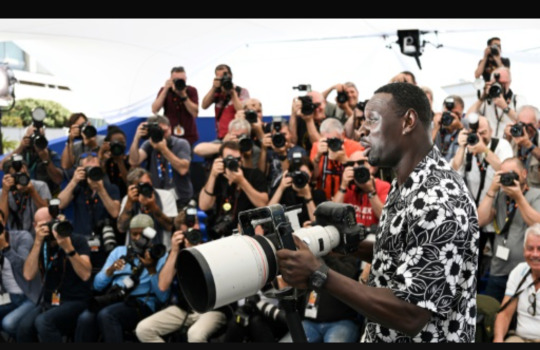
How French film is quietly becoming more diverse

PARIS
"Vermin", a horror film about killer spiders invading a run-down apartment block, has become the first hit of the year in France.
The eight-legged critters are not the only surprise in the low-budget film, however, which for once depicts France's ghetto-like suburbs as more than just a den of drug dealers and terrorists.

Instead the block is shown as a place of hard-scrabble solidarity whose problems stem from abandonment by police, media and society in general.
"We want to challenge stereotypes," said Olivier Saby of co-producers Impact Films. The company was set up in 2018 with a mission to bring more diversity to French cinemas.
"The goal is not to make sure there is a black, Arabic or white person in every scene," he told AFP. "We just want films and TV to reflect real life. If you walk into, for example, a lawyer's office today, you will find a lot more diversity than when you see one on TV."

French cinema has made steady progress in some areas.
French women won two of the last three Palmes d'Or, the top prize at the Cannes Film Festival. Three of the five nominees for best director at next month's Cesars (France's Oscars) are women. (The prize has only once gone to a woman, Tonie Marshall, 24 years ago.)

Race is trickier.
Some black actors have become superstars in France, especially "Lupin" star Omar Sy, and comedian Jean-Pascal Zadi, whose sharp satires about racial politics, "Simply Black" and "Represent", have earned awards and been big international hits on Netflix.
But progress is hindered because it remains illegal to gather data on race in France on the grounds that it would perpetuate artificial divisions, said Wale Gbadamosi Oyekanmi, a PR consultant who invests in Impact Film.

"France doesn't really talk about race. You can't monitor the depth of the challenge because you can't measure it" with statistics, he told AFP. "There are new voices that could be heard, that reflect the country as it is now. It's something that can and must be improved."
Analysts work around the issue by measuring how people are "perceived" rather than directly asking their race.
A study of 115 French films released in 2019 by 50/50 Collectif, a campaign group, found 81 percent of lead characters were "perceived as white".

That is not a commercial decision, it said, since the figure dropped to 68 percent for the 15 most popular films of the year.
But France's cultural gatekeepers still bristle at the idea of mixing social issues with creativity, said Marie-Lou Dulac, founder of diversity consultancy DIRE et Dire.
Many in France see encouraging diversity as a way of "perverting creativity," she said. "Actually it's a way to renew creativity, to encounter new stories and characters.

"We can't keep making the same old caricature of a French film -- a white professional couple in Paris who are cheating on each other," she added with a laugh.
Impact Films supports films with LGBTQ, disabled or ethnic minority leads, said Saby. It finances documentaries about environmental and social issues, and hires people from under-represented groups to work behind the camera.
It also works with scriptwriters to avoid cliches. "Why are minority actors always playing a drug dealer?" he added. "Does every action hero need to drive a 4x4?"

As in other countries, pushing for change triggers a backlash.
Powerful right-wing businessmen are also moving into film productions, such as last year's "Vaincre ou Mourir" ("Victory or Death") about the peasant counter-revolution of the 1790s, a favorite topic of pro-Catholic, pro-monarchy ultra-conservatives.

It was produced by the company behind the Puy du Fou theme park, owned by far-right former presidential candidate Philippe de Villiers.
The risk of a backlash is no reason to give up, said Saby, with "Vermin" up for two Cesar awards and well on its way to being the most successful French horror flick in nearly 25 years.
"There was always this battle. It's just that only one side was winning up to now," he said. "There's plenty of room on screen for everyone."
0 notes
Photo


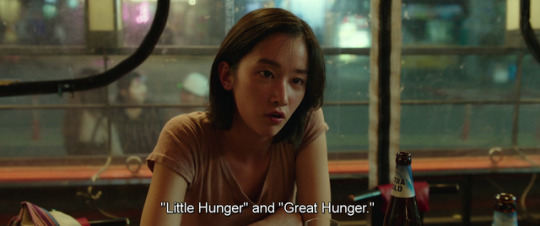
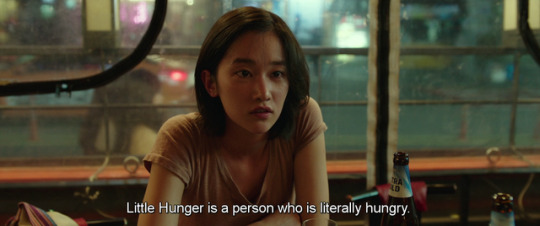
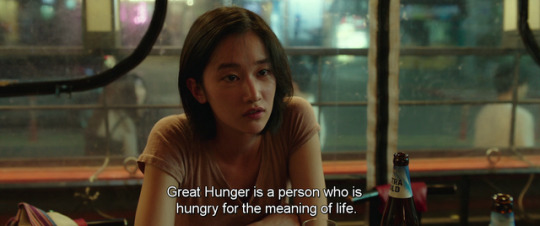
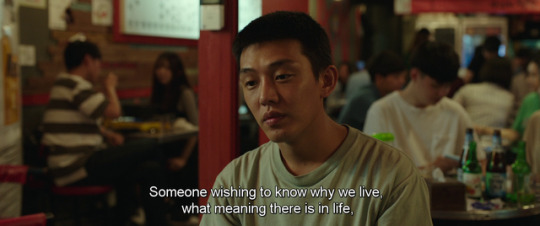
Burning (2018), dir. Chang-Dong Lee
Do you know Bushmen in the Kalahari Desert, Africa? It is said that Bushmen have two types of hungry people: little hungry and great hungry.
Little hungry people are physically hungry.
The great hungry is a person who is hungry for survival. Why do we live, What is the significance of living? People who are always looking for these answers. This kind of person is really hungry.
#burning#beoning#chang-dong lee#ah-in yoo#jong-seo jun#great hunger#little hunger#haruki murakami#barn burning#short story#jungmi oh#south korean director#korean cinema#fipresci prize winner#palme d'or nominee#kyung-pyo hong
73 notes
·
View notes
Text
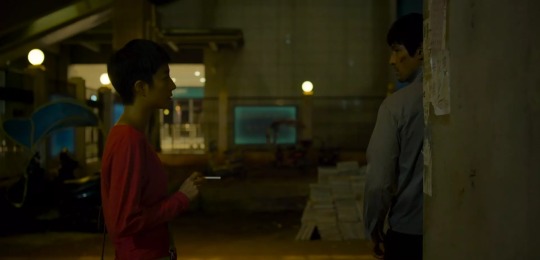

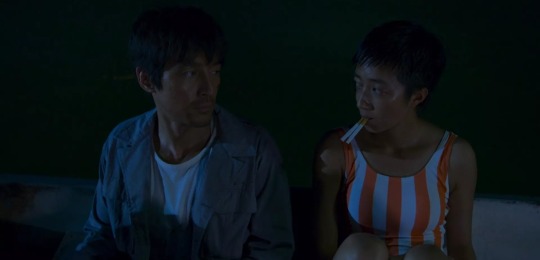
Excuse me, do you have fire?
The Wild Goose Lake (2019) dir. Diao Yinan
#Cannes#2019#Chinese#movie#recommendation#the wild goose lake#diao yinan#movie edit#fire#quote#cinematography#thriller#neo noir#palme d'or#nominee#wild goose lake
18 notes
·
View notes
Text
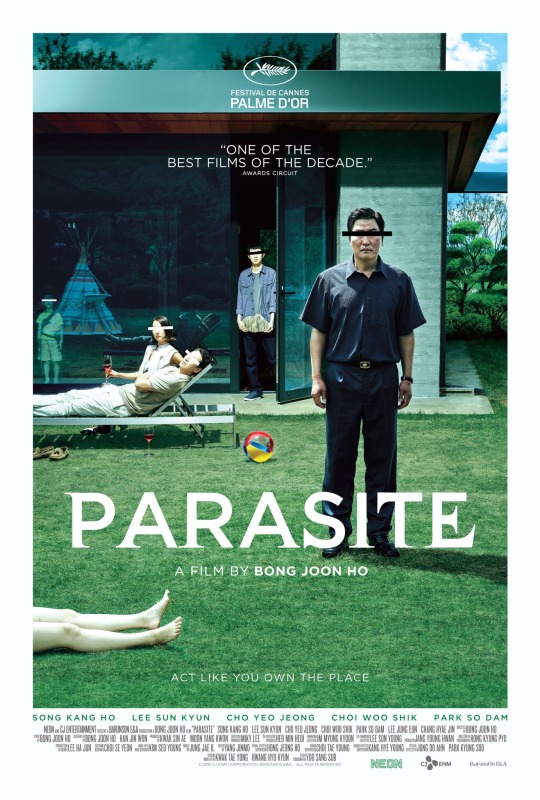
“Parasite”
directed by Bong Joon-ho
4 notes
·
View notes
Photo

197. Chocolate (Chocolat, 1988), dir.ª Claire Denis
#cinema#claire denis#isaach de bankolé#giulia boschi#french cinema#cameroonian cinema#1980s movies#drama#africa#colonialism#timeframe 1950s#master servant relationship#racism#directorial debut#films by women#produced by jean-paul belmondo#palme d'or nominee#césar awards nominee#cult director#cinefilos
1 note
·
View note
Text
Going Through My Movies Part 1: After Life (1998)
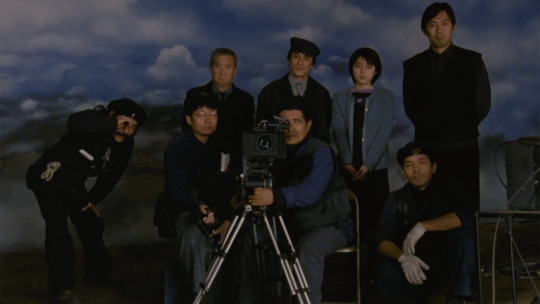
So since I gave up on watching all of this year's Oscar nominees, I am instead going through all the movies I own physically, that I have not seen. First up in alphabetical order is Hirokazu Kore-Eda's 1998 film After Life
But first...

Looney Tunes!
I am also on a quest to watch all of my Looney Tunes: Golden Collection complete box set, which has like 350 shorts so my work is cut out for me. Because of this, I decided that I am going to watch the shorts in their original context, which is before feature movies. Not 1998 Japanese films mind you, but still
The first short which accompanied my viewing of After Life was Baseball Bugs, one of Bugs' most popular shorts. This one was great. So many very fun visual gags. It is very formulaic though. It's the same "Bugs tricks and messes with an asshole" setup that had been done so many times before and would be done many more times in the future. But hey, it's done very well here so I can't complain. The animation here was very good, Bugs breaks all of his bones playing a very simple sport. They take every joke to its logical extreme, my favourite bit might be the slow ball gag.
Anyways

After Life. This is the third film I've seen from Hirokazu Kore-Eda. If you're not familiar with him, he's most well known for his many family dramas, especially his Palme d'Or winning 2018 film Shoplifters, which is usually considered his magnum opus, and also the first film I saw from him. It's a film about a group of grifters of various ages who all live together as a weird sort of dysfunctional illegal family. When I first saw Shoplifters I was only beginning to get into Japanese cinema, and it absolutely blew me away. Every character in Shoplifters is written basically perfectly. Kore-Eda creates this very claustrophobic atmosphere, really showcasing how this found family(?) is bonded together both by the conditions of their life and their own personal emotions. It makes it hit so much harder when things do open up for the characters. It's a beautiful drama that could really only work on film, on a Kore-Eda film. After that I watched his film After the Storm. After the Storm is basically about a man who has a day with his son and then because of a storm has to spend the night with his son and his divorced wife due to a storm. I also really enjoy AtS. It's kind of like Marriage Story in that the first time I watched it I was rooting for the husband and the second time I hated him. Maybe I just matured but it felt like you got to see a very complex character. It has very interesting things to say about parenthood, generational trauma, addiction, and masculinity.
Now I loved these 2 movies, so I was very excited to watch After Life. It was not Kore-Eda's first film, but rather the one that really got him critical attention and launched his career. It is also very unlike the rest of his movies. This is not a family drama, rather it is a high concept experimental film about memory and death.
The concept of After Life is that after you die, you are transported to an office where you must choose 1 memory from your life to be recreated on film, viewed by you, and then relived for eternity.
Kore-Eda is not at all concerned with worldbuilding or much explanation on how this system works. We get bits and pieces, but the nature of the world of After Life is mostly left ambiguous.
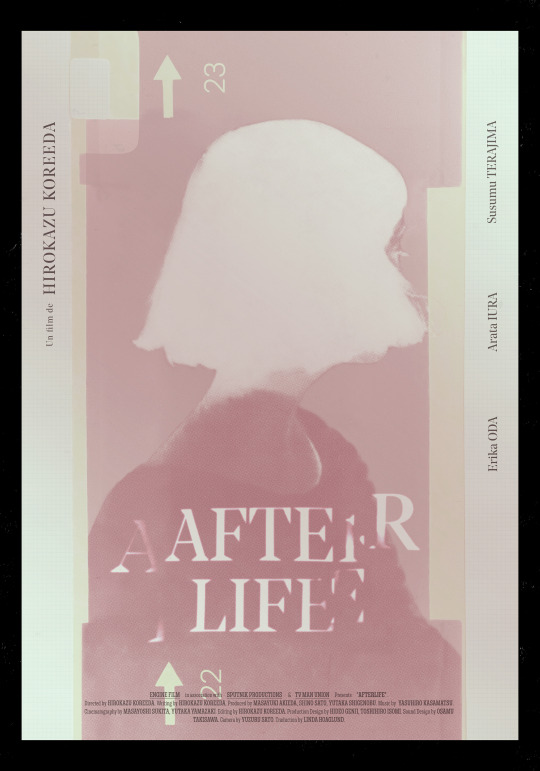
What After Life is concerned with, is everything that goes into the process. Why choose this specific memory? How do you recreate a memory? Is this memory really worth it? Am I really worth it? What if you have no good memories? What does it mean to return to your youth? These are the kinds of things that the film is constantly asking
The philosophical aspects of After Life are definitely the most interesting part of the film. Not to say they're the only interesting part. A lot of the scenes of deciding what memory to use are shot like a documentary, in fact some of them feature real people just sitting down and talking about what they would choose as if it was a documentary. It gives these parts a very intimate feel to them that I like.
At the end of the day, what carries a movie with this concept are the characters. We need interesting complex people whose process of exploring their memories can be fleshed out. In my opinion, this is where After Life fails. There are a couple of interesting things at play with some of them, but most members of the main cast are way too one note. Far from the deeply complex characters we would go on to get in After the Storm and Shoplifters.
I think if this film had more interesting characters with actual conflicts, After Life would be a much better movie. I'd say only 2 people really compelled me. Kore-Eda makes very grounded movie, and I'll admit, while these characters lack complexity they don't really feel unrealistic. They're just... boring.
I liked After Life. It's directed EXTREMELY well and shot well too. Story wise there are moments of absolute brilliance but it leaves a lot to be desired. With all his knowledge of character writing he's gotten from his grounded family dramas, I'd love for Kore-Eda to return to high concept films. I would kill for a better version of this movie
Anyways, I know this has a dedicated cult following but it just didn't do it for me like his other 2 films did. I know this was adapted into a play and I'll admit I'd like to see that. Overall though
7/10
If you're wondering, the next film alphabetically is Anomalisa by Charlie Kaufman and Duke Johnson. Very excited for this one!
#afterlife#looney tunes#film#criterion#blu-ray#buggs bunny#bugs bunny#after life#japan#japanese cinema#kore-eda
5 notes
·
View notes
Photo
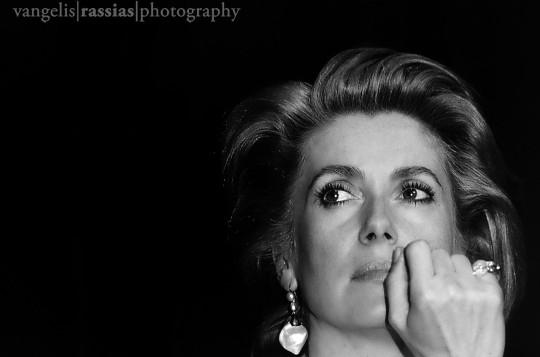
#Catherine Deneuve Portrait
Cannes 1984
Contax RTS Carl Zeiss T* Tessar 200mm f/3,5 Agfapan 100
Catherine Fabienne Dorléac (born 22 October 1943), known professionally as Catherine Deneuve , is a French actress as well as an occasional singer, model and producer, considered one of the best European actresses and the greatest French actress of all time.. She gained recognition for her portrayal of icy, aloof and mysterious beauties for various directors, including Luis Buñuel, François Truffaut and Roman Polanski. In 1985, she succeeded Mireille Mathieu as the official face of Marianne, France's national symbol of liberty. A 14-time César Award nominee, she won for her performances in Truffaut's The Last Metro (1980), for which she also won the David di Donatello for Best Foreign Actress, and Régis Wargnier's Indochine (1992).
Deneuve made her film debut in 1957 and first came to prominence in Jacques Demy's 1964 musical The Umbrellas of Cherbourg. She went on to star in such films as Repulsion (1965), Donkey Skin (1970), Belle de Jour (1967), Tristana (1970) and The Young Girls of Rochefort (1967) opposite her sister, the actress Françoise Dorléac. She was nominated for the BAFTA Award for Best Actress for Belle de Jour, and the Academy Award for Best Actress for Indochine. She also won the 1998 Volpi Cup for Best Actress at the Venice Film Festival for Place Vendôme. Other notable English-language films include The April Fools (1969), Hustle (1975), The Hunger (1983) and Dancer in the Dark (2000).
Deneuve was born Catherine Fabienne Dorléac in Paris, the daughter of French stage actors Maurice Dorléac (1901–1979) and Renée Simonot (b. 1911). Deneuve has two sisters, Françoise Dorléac (1942–1967) and Sylvie Dorléac (born 14 December 1946), as well as a maternal half-sister, Danielle, whom their mother had out of wedlock in 1937 with Aimé Clariond, but who was later adopted by Maurice and took his surname. Deneuve was her mother's maiden name, which she chose for her stage name, in order to differentiate herself from her sisters. Deneuve attended Catholic schools .
Deneuve made her film debut with a small role in André Hunebelle's Les Collégiennes (1957) with her younger sister Sylvie Dorléac who, like their older half-sister Danielle, was an occasional child actress. She subsequently appeared in several films for director Roger Vadim as well as in L'Homme à femmes (1960), which caught the eye of Jacques Demy, who cast Deneuve in his 1964 musical Les Parapluies de Cherbourg, the film that brought her to stardom. Deneuve played the cold but erotic persona, for which she would be nicknamed the "ice maiden", in Roman Polanski's horror classic Repulsion (1965), reinforcing it in Luis Buñuel's Belle de Jour (1967), and reaching a peak in Tristana (1970).Her work for Buñuel would be her most famous .
Further prominent films from this early time in her career included Jean-Paul Rappeneau's A Matter of Resistance (1966), Demy's musical Les Demoiselles de Rochefort (1967) and François Truffaut's romantic thriller Mississippi Mermaid (1969). Deneuve remained active in European films during the 1960s and 1970s, though she limited her appearances in American films of the period to The April Fools (1969), a romantic comedy with Jack Lemmon, and Hustle (1975), a crime drama with Burt Reynolds. Her starring roles at the time were featured in such films as A Slightly Pregnant Man (1973) with Marcello Mastroianni and Le Sauvage (1975) with Yves Montand.
In the 1980s, Deneuve's films included François Truffaut's Le Dernier métro (1980), for which she won the César Award for Best Actress, and Tony Scott's The Hunger (1983) as a bisexual vampire, co-starring with David Bowie and Susan Sarandon, a role which brought her a significant lesbian and cult following, mostly among the gothic subculture. She made her debut film as a producer in 1988, Drôle d'endroit pour une rencontre, alongside frequent co-star Gerard Depardieu.
In the early 1990s, Deneuve's more significant roles included 1992's Indochine opposite Vincent Perez, for which she was nominated for an Academy Award for Best Actress and won a second César Award for Best Actress; and André Téchiné's two movies, Ma saison préférée (1993) and Les Voleurs (1996). In 1997, Deneuve was the protagonist in the music video for the song N'Oubliez Jamais sung by Joe Cocker. In 1998 she won acclaim and the Volpi Cup at the Venice Film Festival for her performance in Place Vendôme. In the late 1990s, Deneuve continued to appear in a large number of films such as 1999's five films Est-Ouest, Le temps retrouvé, Pola X, Belle maman, and Le Vent de la nuit.
In 2000, Deneuve's part in Lars von Trier's musical drama Dancer in the Dark alongside Icelandic singer Björk was subject to considerable critical scrutiny. The film was selected for the Palme d'Or at the Cannes Film Festival. She made another foray into Hollywood the following year, starring in The Musketeer (2001) for Peter Hyams. In 2002, she shared the Silver Bear Award for Best Ensemble Cast at the Berlin International Film Festival for her performance in 8 Women. In 2005, Deneuve published her diary A l'ombre de moi-meme ("In My Own Shadow", published in English as Close Up and Personal: The Private Diaries of Catherine Deneuve); in it she writes about her experiences shooting the films Indochine and Dancer in the Dark. She also provided the voice role of Marjane Satrapi's mother in Satrapi's animated autobiographical film Persepolis (2007), based on the graphic novel of the same name. In 2008, she appeared in her 100th film, Un conte de Noël.
Deneuve's recent work includes Potiche (2010) with frequent co-star Depardieu, Beloved (2011), alongside former co-stars Ludivine Sagnier and Chiara Mastroianni, the popular French adventure comedy Asterix and Obelix: God Save Britannia (2012) with Gerard Depardieu and Valérie Lemercier, screenwriter and director Emmanuelle Bercot's On My Way (2013), Palme D'or winning writer/director Pierre Salvadori's comedy drama In the Courtyard (2014), and André Téchiné's drama In the Name of My Daughter (2014). In 2017, she co-starred alongside Catherine Frot, in writer/director Martin Provost's French drama The Midwife, which has been acquired by Music Box Films for a summer 2017 distribution in the United States.
Deneuve appeared nude in two Playboy pictorials in 1963 and 1965. Her image was used to represent Marianne, the national symbol of France, from 1985 to 1989.[citation needed] As the face of Chanel No. 5 in the late 1970s, she caused sales of the perfume to soar in the United States – so much so that the American press, captivated by her charm, nominated her as the world's most elegant woman. In 1983, American Home Products retained her to represent their cosmetics line and hired world-renowned photographer Richard Avedon to promote its line of Youth Garde cosmetics, for which she famously proclaimed, "Look closely. Next year I will be 40."
She is considered the muse of designer Yves Saint Laurent; he dressed her in the films, Belle de Jour, La Chamade, La sirène du Mississipi, Un flic, Liza and The Hunger. In 1992, she became a model for his skincare line. In 2001, she was chosen as the new face of L'Oréal Paris. In 2006, Deneuve became the third inspiration for the M•A•C Beauty Icon series and collaborated on the colour collection that became available at M•A•C locations worldwide in February that year. Deneuve began appearing in the new Louis Vuitton luggage advertisements in 2007. Deneuve was listed as one of the fifty best-dressed over 50s by the Guardian in March 2013. In July 2017, Deneuve appeared in a video campaign for Louis Vuitton entitled Connected Journeys, celebrating the launch of the brand's Tambour Horizon smartwatch, which also featured celebrities, including Jennifer Connelly, Bae Doona, Jaden Smith and Miranda Kerr.
In 1986, Deneuve introduced her own perfume, Deneuve. She is also a designer of glasses, shoes, jewelry and greeting cards
Deneuve speaks fluent French, Italian and English and has some knowledge of Spanish, though she does not speak the language fluently. Her hobbies and passions include gardening, drawing, photography, reading, music, cinema, fashion, antiques and decoration.
Deneuve has been married once, to photographer David Bailey from 1965 to 1972. She has lived with director Roger Vadim, actor Marcello Mastroianni,cinematographer Hugh Johnson, Spanish model and current television presenter Carlos Lozano, and Canal+ tycoon Pierre Lescure.
Deneuve has two children: actor Christian Vadim, from her relationship with Roger Vadim, and actress Chiara Mastroianni, from her relationship with Marcello Mastroianni. She has five grandchildren.
Deneuve is close friends with the artist Nall and owns some of his works.
On 6 November 2019, BBC News reported that Deneuve suffered a mild stroke and was recuperating in a Paris hospital. Despite the health scare, there was no damage to her motor functions. Five weeks later, she was released from the hospital and spent the remainder of 2019 recuperating at her Paris home.
#catherine deneuve#portrait#portrait photography#famous actress#celebrity#black and white#beauty#french cinema#film star#movies star#beautiful#attractive#analog camera#film#cannes#film festival
15 notes
·
View notes
Photo
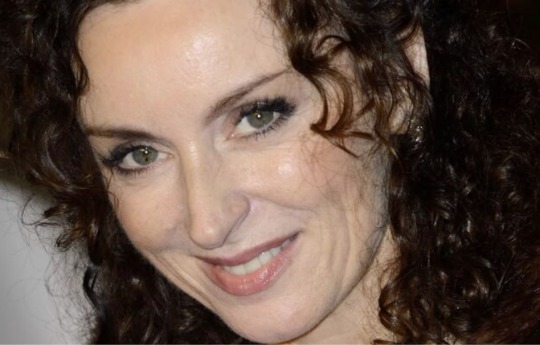
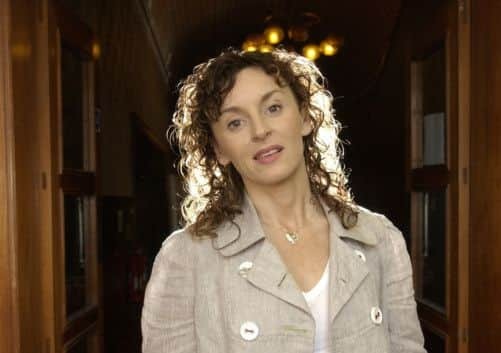
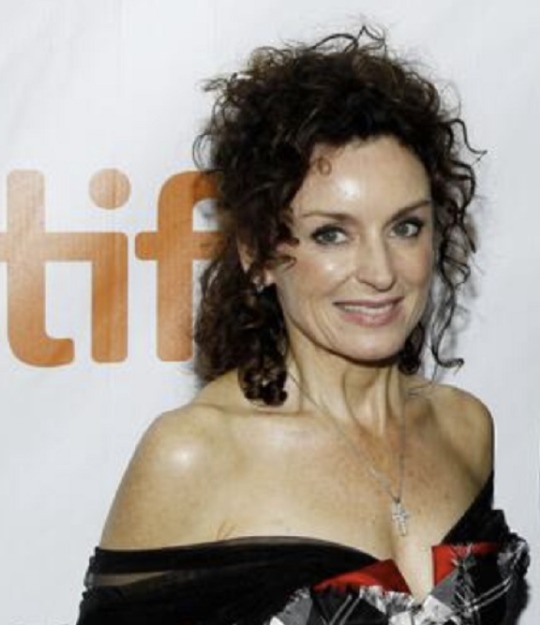
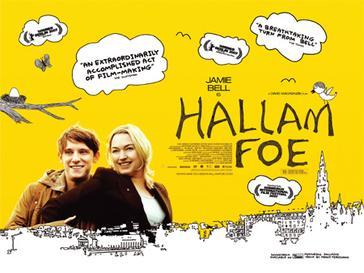
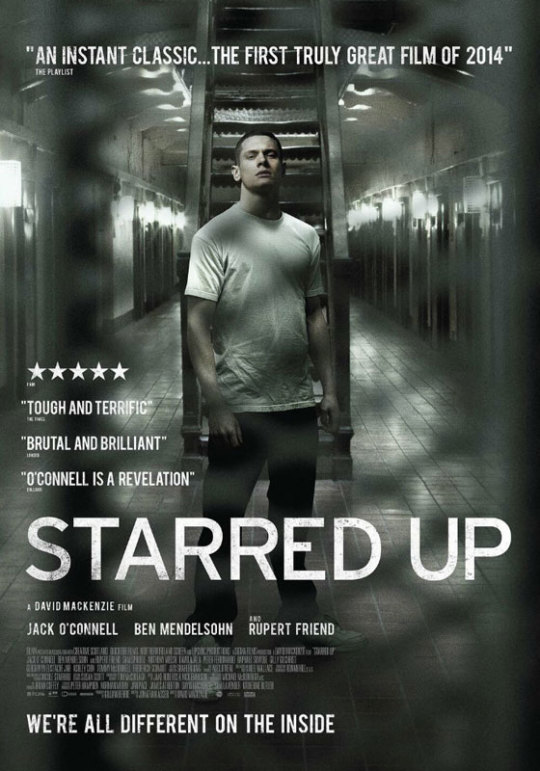

Happy Birthday filmmaker Gillian Berrie, born on September 8th 1967 in Glasgow.
In 1996 Gillian co-founded Sigma Films with director David Mackenzie, writing and producing serial award-winning shorts, 'California Sunshine' and 'Somersault'.
Alongside, Gillian gained experience in numerous film and television roles, ie Casting Director on Ken Loach's 'My Name is Joe' (for which Peter Mullan won the Palme D'or in Cannes) and Lynne Ramsay's legendary 'Ratcatcher'.
Casting experience on the aforementioned led Gillian to create the charity, 'Starfish' which then became 'Jumpcut', which morphed into 'Short Circuit', and 'Big Fish Casting' which segued into Kahleen Crawford Casting
Gillian then produced many of David Mackenzie's films including: Last Great Wilderness, Hallam Foe, Young Adam, You Instead (aka Tonight You're Mine), Perfect Sense, Starred Up and the biggest film ever to be make in Scotland, Outlaw King. She was also heavily involved in the post-production, festival, UK/US theatrical release and Oscar campaign for Academy Award Nominee 'Hell or High Water'.
Sigma's films regularly premiere at A-List festivals and have received over 150 awards internationally, including the Prix de Jury in Cannes for Red Road, and the Silver Bear in Berlin for Hallam Foe, as well as numerous BIFA and BAFTA nominations and awards.
At the Scottish BAFTA New Talent Awards in 2002 Gillian won the BAFTA for Outstanding Achievement.
In order to create a vibrant hub for the film community in Scotland, Gillian founded the 65,000 square ft state of the art, Film City Glasgow in 2004. Since then it has been a full house of productions and film-makers.
In 2012 she founded 'Jumpcut', the UK's one and only, intensive, mentor-led Summer School to provide a fast-track for youngsters into working in the film industry. This project was a runaway success. Over 75% of the participants went onto working in the industry. It ran for two years and won several awards.
She also co-produced the multi-prize winner 'Dear Frankie' and Jonathan's Glazer's 'Under the Skin' (which won 23 awards and received 110 nominations).
Gillian also produced several features for first time feature film directors, including David Mackenzie, Colin Kennedy, Andrea Arnold, Morag MacKinnon and Ciaran Foy, as well as numerous additional shorts including the lauded I Love Luci.
Gillian is currently in post-production with Taron Egerton's forthcoming feature for Apple, 'Tetris'. She also exec-produced the critically acclaimed Pilot and 2nd episode of the Disney/ FX series, 'Under the Banner of Heaven' for which Andrew Garfield has been nominated for an Emmy (2022).
Gillian has numerous projects in development and has just directed her first short film, 'Food for Love'.
8 notes
·
View notes
Photo

Nicholas Britell and Hildur Guðnadóttir crowned winners at the 19th World Soundtrack Awards
After winning the Discovery of the Year Award in 2017, Nicholas Britell took home another award this year: he was named Best Film Composer of the Year by the World Soundtrack Academy for his soundtrack for 'If Beale Street Could Talk.'
The prize for Best Television Composer of the Year went to special guest and Emmy winner Hildur Guðnadóttir, who created the score for the popular HBO series 'Chernobyl'. Last year, Guðnadóttir was one of the Discovery of the Year nominees for 'Sicario: Day of the Soldado'. In the meantime, both Britell and Guðnadóttir have made a name for themselves worldwide with their scores for the HBO series 'Succession' and Todd Philips' 'Joker' respectively.
The prize for Best Original Song Written Directly for a Film was awarded to the track 'Shallow' from 'A Star is Born'. This composition was written by Lady Gaga, Andrew Wyatt, Anthony Rossomando and Mark Ronson, and was performed by Lady Gaga and Bradley Cooper.
African-American composer Michael Abels was named Discovery of the Year for the score he created for Jordan Peele's 'Us'. The pair had already collaborated before on the film 'Get Out'.
In the category of Best Original Score for a Belgian Production, Belgian Frédéric Vercheval was awarded for his score for Olivier Masset-Depasse's 'Duelles'. The composer has already been nominated four times for the Magritte Award for Best Original Score for 'Diamant 13' (2009), 'Krach' (2010), 'Not My Type' (2014) and 'Melody' (2014).
Young American jazz pianist and composer Pierre Charles won the SABAM Award for the Most Original Composition by a Young International Composer. The Public Choice Award went to John Powell for his music in Dean Deblois' 'How To Train Your Dragon: The Hidden World'.
As previously announced, Krzysztof Penderecki was honoured with a Lifetime Achievement Award. The Polish composer undoubtedly put his mark on film music history with his innovative and unconventional music. He collaborated with world famous composers such as Stanley Kubrick ('The Shining'), David Lynch ('Inland Empire', 'Twin Peaks'), Martin Scorsese ('Shutter Island') and William Friedkin ('The Exorcist').
Frédéric Devreese was also given a Lifetime Achievement Award. In light of his 90th birthday, Brussels Philharmonic honoured the father of Belgian film music. Devreese is known for his collaboration with André Delvaux on Palme D'or nominee 'L'oeuvre au noir', but also 'Du bout des lèvres' (Jean-Marie Degesves) and 'Les Noces Barbares' and 'Il Maëstro' (Marion Hansëm).
During the award ceremony, compositions were performed live by Brussels Philharmonic, conducted by maestro Dirk Brossé, with accompanying clips on the big screen. Guest of honour this year was Marco Beltrami, known for his horror scores including the 'Scream' franchise. He recently composed the music for box office hit 'A Quiet Place', nominated for a Golden Globe for Best Score, Netflix's 'Velvet Buzzsaw' and Oscar-winning National Geographic documentary 'Free Solo', for which he received an Emmy Award.
If you couldn't make it to the World Soundtrack Awards, there is still a possibility to enjoy the collaboration between Marco Beltrami and Brussels Philharmonic. Following our yearly tradition, a selection of our guest of honour's masterpieces were recorded with MotorMusic in Flagey's legendary Studio 4. The result is the album 'Marco Beltrami: Music for Film', featuring unique suites from 'Snowpiercer', 'World War Z' and 'A Quiet Place'.
Winners 19th World Soundtrack Awards
Best Film Composer of the Year
Nicholas Britell ('If Beale Street Could Talk', 'Vice')
Best TV Composer of the Year
Hildur Guðnadóttir (‘Chernobyl’, ‘Ófærð’)
Best Original Song written directly for a Film
'Shallow' ('A Star Is Born'). Music & lyrics by Lady Gaga, Andrew Wyatt, Anthony Rossomando and Mark Ronson. Performed by Lady Gaga and Bradley Cooper.
Discovery of the Year 2019
Michael Abels ('Us')
Best Original Score for a Belgian Production
‘Duelles’ (Frédéric Vercheval)
SABAM Award for the Most Original Composition By a Young International Composer
Pierre Charles
Public Choice Award
‘How to Train Your Dragon: The Hidden World’ (John Powell)
47 notes
·
View notes